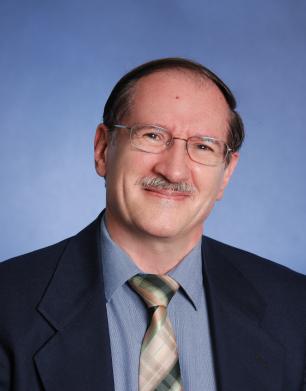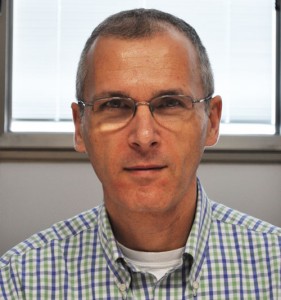Prof. Jose Marti
Monday 13/10/2014, 09:00-10:00
CIPRNet Lecture

System of Systems Simulation in a Cooperative Multinational Environment
Interdependencies among critical infrastructures play a major role in understanding the complex physical, economic, and social systems that constitute the fabric of modern societies. Aristotle’s principle of causality is not enough to understand the karmic effects of actions and consequences. Feedback loops are needed to complete the cycle of interactions. The CIPRNet effort, and other efforts, seek to integrate multiple critical infrastructures (electricity, water, communications, and others) from the perspective of understanding their interactions and coordinating their responses across jurisdictions and national borders. This presentation will address the development of a system of systems simulator capable of linking multiple agents in a cooperative environment to best optimize common objectives.
JosΓ© R. MartΓ is a Professor of Electrical and Computer Engineering at the University of British Columbia in Vancouver Canada. He has many years of experience in developing real time simulation tools for large electric power system networks. In his recent work, he has developed a system of systems simulator capable of combining multiple critical infrastructures into a common ontological framework. This simulator was used to provide analysis of critical scenarios for the Vancouver 2010 Winter Olympics and is currently part of the effort to deploy an Earthquake Early Warning System for the province of British Columbia. Dr. MartΓ’s team at UBC is an external partner of the European consortium CIPRNet to develop a European network of excellence for critical infrastructure protection.
Rossella Mattioli
Tuesday 14/10/2014, 09:00-10:00

Methodologies for the identification of Critical Information Infrastructure assets and services
Electronic data communication networks are an essential component of the life of millions of European Citizens. These networks represent the fabric of the future information society and provide the means for the single digital market. Moreover, part of these electronic data communication networks are also vital for Critical Infrastructures and regarding specific critical services represent Critical Information Infrastructures themselves. This presentation will provide an overview of the complex task of correctly identifying Critical Information Infrastructure assets and services in Europe and ensure security and resilience of the connected continent.
Rossella Mattioli holds a MSc in Engineering with main specialization in Cybersecurity at Tallinn University of Technology and a BA in Communication Sciences. Prior to focus on infrastructure security and resilience, she was the intranet manager of a major financial group in Italy for 9 years coordinating an internal network of over 6,000 employees. In the past Rossella participated in the ICANN DNS Security and Stability Analysis working group and IETF Managed Incident Lightweight Exchange working group. In ENISA Rossella works as a Security and Resilience of Communication Networks Officer to foster security and resilience of European communication networks with particular focus on Internet infrastructure and critical information infrastructures.
Dr. Vittorio Rosato

Risk Prediction for Increasing Critical Infrastructure Protection: a Key Issue for Enhancing City Resilience
Critical Infrastructures are at the heart of modern cities. Their integrity, obtained by the increase of their robustness and resilience against natural threats has twofold outcomes: one one side for protecting citizens and guaranteeing a constant level of the dispatchment of primary services. On the other side, the perception of a true urban resilience is a remarkable asset for Public Administrations and a successful way for providing wealth to their communities.
EU has given a central position to CIP in its legislation and provided fundings to the realization of new ideas and initiatives in this context, on both FP7 and H2020. Several initiatives are also ongoing in several Member States under the umbrella of β€Smart Citiesβ€ technologies.
As a best practice of conjunction between EU and national initiatives, the talk will present a successful integration between EU and national programs for the development of new integrated technologies for operational CI Risk Analysis for the Resilience enhancement of complex systems such as metropolitan areas.
Vittorio Rosato received the Laurea degree in Physics at the University of Pisa (I) in1979 and the Ph.D. in Physics at the University of Nancy (F) in1986. He has been Research Assistant at the Chemistry Dept. of the University College of Wales in Aberystwyth (UK) (1979-1981), Boursier CNRS at the Centre de Calcul Atomique et Moleculaire in Orsay (France) (1982) and EURATOM Fellow at the Saclay Centre d’Etudes Nucleaires Saclay of the Commissariat a l’Energie Atomique (CEA, France) from 1983 to 1986. Since 1990 he is Staff Scientist at the ENEA Casaccia Research Centre. He is currently Head of the ENEA Laboratory of Technological and Computing Infrastructures, focused on analysis and simulation of models of technological infrastructures and on Complexity Science. He acts as supervisor and project evaluator for the Italian Ministry of University and Research, that of Economic Development and in the Scientific Boards of several Italian Regions. He has been Coordinator of several national projects and responsible of ENEA’s activity in several EU-funded projects. He is co-founder of the Ylichron Srl company, established in 2005, active in the ICT area and, from 2009, in the biotechnological domain. He is author of more than 100 scientific papers on peer reviewed journals.
Prof. Avi Ostfeld

Water distribution systems security enhancement through monitoring
Since the events of 9/11 2001 in the US the world public awareness to possible terrorist attacks on water supply systems has increased dramatically, causing the security of drinking water distribution systems to become a major concern around the globe. Among the different threats to water distribution systems, a deliberate chemical or biological contaminant intrusion is considered the most difficult threat to address, both because of the uncertainty of the type of the injected contaminant and its consequences, and as of the uncertainty of the location and injection time. An online contaminant monitoring system (OCMS) is considered the major tool to reduce the likelihood of a deliberate contaminant chemical or biological intrusion. An OCMS should be designed to detect random contamination events and to provide information on the location of the contaminants within the system, including an estimation of the injection characteristics (i.e., contaminant type, injection time and duration, concentration, and injected mass flow rate). Once the type of the contaminant and its characteristics are discovered, a containment strategy can be implemented to minimize the pollutant spread throughout the system, and to suggest for the system’s portions that need to be flushed. This talk reviews the state of the art on utilizing monitoring stations/sensors for drinking water distribution systems security enhancements, and suggests new directions and challenges in this area.
Avi Ostfeld, D.Sc., P.E., D.WRE (http://www.technion.ac.il/~avi/avi.htm) is an Associate Professor at the Faculty of Civil and Environmental Engineering at the Technion – Israel Institute of Technology, and the Editor in Chief of the Journal of Water Resources Planning and Management Division, ASCE. Dr. Ostfeld was a Senior Engineer and Project Manager at TAHAL – Consulting Engineers Ltd. in Tel – Aviv from 1997 to 2000; a Research Associate at the Department of Civil Engineering, the University of Arizona, Tucson, AZ, from 1996 to 1997; and a Research Associate at the Technion Water Research Institute from 1994 to 1996. During 2008/2009 he spent sabbaticals as Visiting Professor at the University of Illinois at Urbana Champaign and at the University of Kyoto. Dr. Ostfeld research activities are in the fields of water resources systems, hydrology, and in particular in the area of water distribution systems optimization using evolutionary computation: water distribution systems security, optimal design and operation of water distribution systems, and integrating water quality and reliability into water distribution systems management and control.
